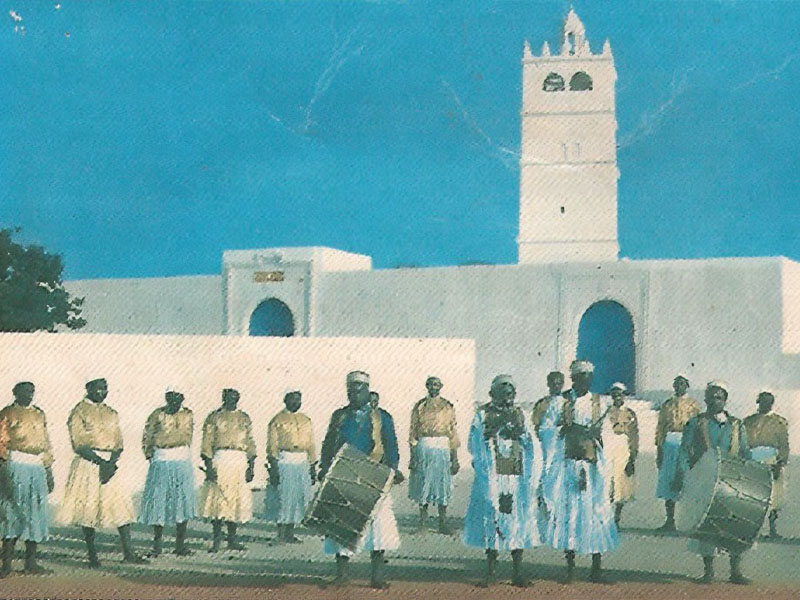The Vuvu Groups' Body Language and Semantic Expressions Southeastern Tunisian
Issue 58

Dr. Munji Al-Suwai’i
Tunisian dance is regarded as one of the most pantomimical expressions since it is based on bodily compositions that have been associated with man since ancient times. The majority of historical, social, and anthropological sources and references show that the Pharaonic civilization was among the first to value dance, a ceremonial art form that is considered a sacred rite ordered by priests and revered by traditions, and which has the highest status and reverence in those ages. "No civilisation has come close to what Egypt has done in terms of preserving and sanctifying dance and integrating it into all religious ceremonies."
The survival of "Al Satambali" groups in Tunisia, as well as their spread in various Zawiyas of Sidi Saad in Tunisia and on the island of Djerba-Sidi Mansour in Sfax and "Sidi Marzouf Al-Ajami" in Gabes and Kebli is evidence of the high status this therapeutic psychodrama's have in microsocial folk culture.
The "Vuvu" groups are regarded as one of the most important artistic groups in the southeast, with all of their members being black minorities who are distinguished by their artistic talents, whether at the level of playing folk instruments or those who demonstrate mastery in bodily expressions, particularly in distinct types of dance that require a great deal of physical effort, especially since these artistic practices occupy a large part of their musical heritage.
These groups keep up their creative efforts in order to keep their history, authenticity, and traditions alive.
Since Vuvu was started more than 50 years ago, two groups have been set up in two places near each other called "Vuvu" Djerba and "Vuvo" Jirjis.
The term "Vuvu" was given to these two groups without any specific knowledge of its origins, except for the only hypothesis agreed upon by all members of the "Vuvu," which was attributed to a person named "Khadur Bushama" who worked in the field of tourist marketing. He chose this name because it is easy to remember and pronounce, and it was used to introduce them to foreign tourists at the time, rather than the other names by which they were known by locals, such as "Nubat Al Abid" or "Al Takhmirah," as one narrator noted.
It was stated that the name is a combination of the words "vivu" and "vuvi," which also refer to the names of the African instruments, the "guembri," that the group used. However, these stories don't seem to be true, because this name has been around since the beginning of black groups in the southeast, which happened to be at the height of the slave trade in a number of African cities and cities in the north of this continent at the end of the 1800s.



































































